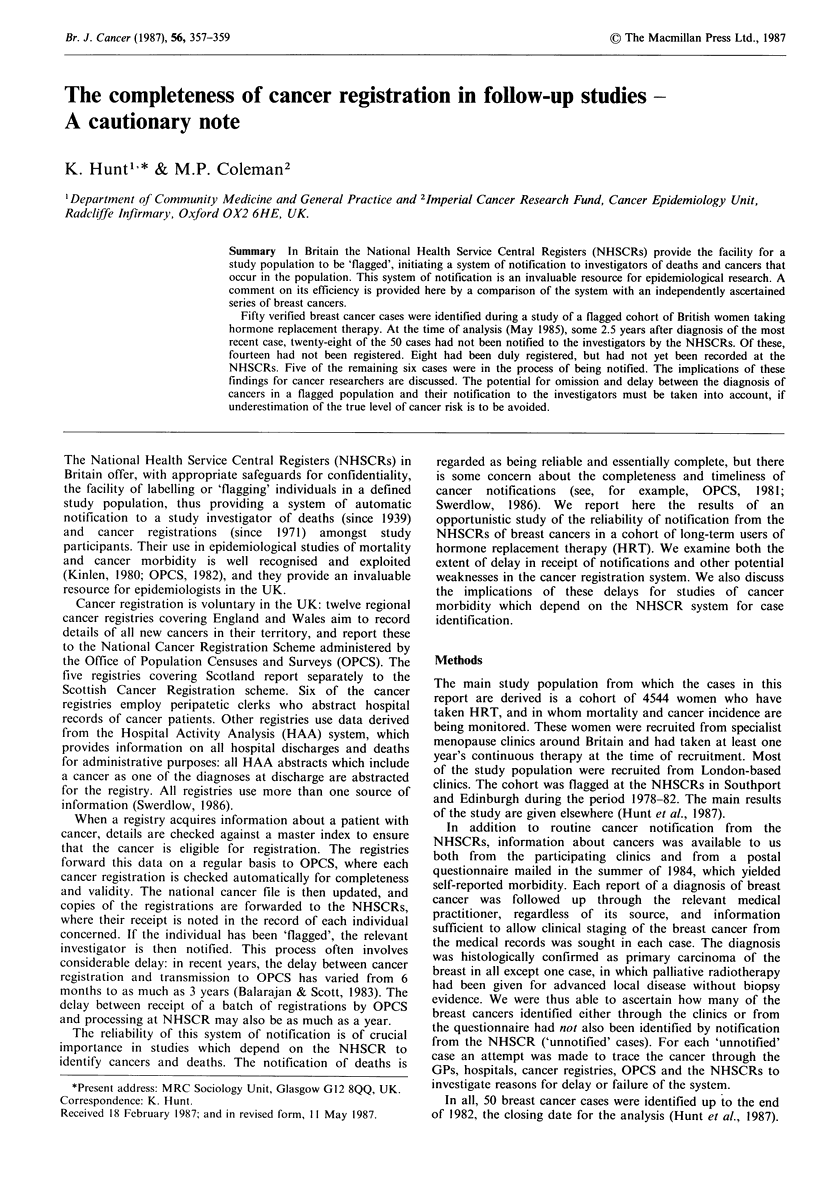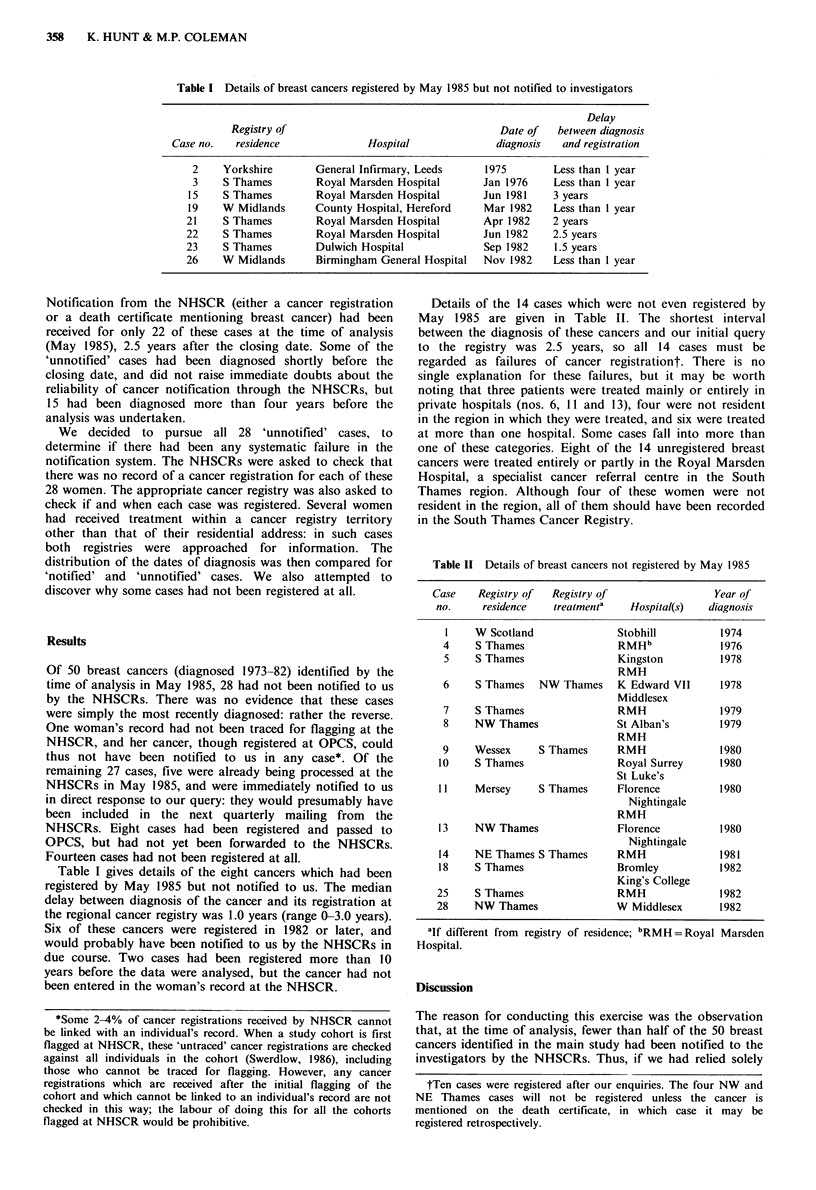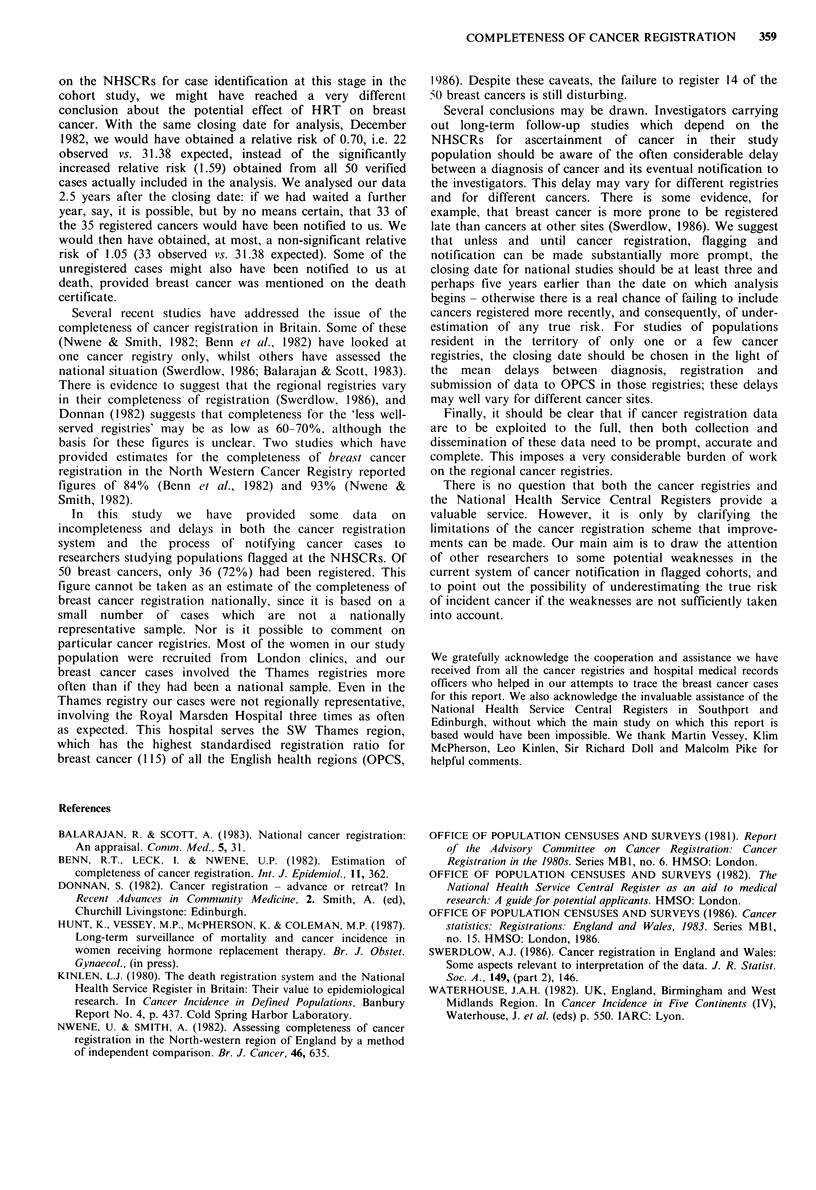Abstract
In Britain the National Health Service Central Registers (NHSCRs) provide the facility for a study population to be 'flagged', initiating a system of notification to investigators of deaths and cancers that occur in the population. This system of notification is an invaluable resource for epidemiological research. A comment on its efficiency is provided here by a comparison of the system with an independently ascertained series of breast cancers. Fifty verified breast cancer cases were identified during a study of a flagged cohort of British women taking hormone replacement therapy. At the time of analysis (May 1985), some 2.5 years after diagnosis of the most recent case, twenty-eight of the 50 cases had not been notified to the investigators by the NHSCRs. Of these, fourteen had not been registered. Eight had been duly registered, but had not yet been recorded at the NHSCRs. Five of the remaining six cases were in the process of being notified. The implications of these findings for cancer researchers are discussed. The potential for omission and delay between the diagnosis of cancers in a flagged population and their notification to the investigators must be taken into account, if underestimation of the true level of cancer risk is to be avoided.
Full text
PDF


Selected References
These references are in PubMed. This may not be the complete list of references from this article.
- Balarajan R., Scott A. National cancer registration: an appraisal. Community Med. 1983 Feb;5(1):31–37. doi: 10.1007/BF02548581. [DOI] [PubMed] [Google Scholar]
- Benn R. T., Leck I., Nwene U. P. Estimation of completeness of cancer registration. Int J Epidemiol. 1982 Dec;11(4):362–367. doi: 10.1093/ije/11.4.362. [DOI] [PubMed] [Google Scholar]
- Nwene U., Smith A. Assessing completeness of cancer registration in the north-western region of England by a method of independent comparison. Br J Cancer. 1982 Oct;46(4):635–639. doi: 10.1038/bjc.1982.248. [DOI] [PMC free article] [PubMed] [Google Scholar]


